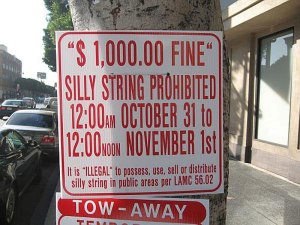I Am My Brother’s Keeper.
http://protectthepope.com/?p=8679
The above blog post is about a poll that found about half of Catholics believe bed and breakfast (B&B) owners should “be allowed to refuse accommodation to people based on their sexuality”. I think this type of belief borders on Donatism.
The Donatists thought that for priests to validly administer the sacraments, they needed to be perfect. The sin of a priest would nullify the sacrament. In a similar way, the suspected sin of tenants of a rented room would be enough to nullify the teaching of the Church that, “Every sign of unjust discrimination in their [i.e., homosexual people] regard should be avoided.”
The argument that the blogger makes is that it is a just discrimination to help people avoid a near occasion of sin. If you know I have a problem with a certain sin, it is your responsibility to help me avoid that sin. Unlike how Cain thought, you are your brother’s keeper. This is a good and correct argument.
However, I don’t think this argument holds in this case because if it did, Catholic hotel owners would be required to not rent rooms to heterosexual unmarried couples, to divorced and then remarried people on their honeymoons, and so forth. The fact that this particular set of B&B owners wasn’t in the news earlier for rejecting an unmarried couple out on a tryst I think indicates that their discrimination against a same sex couple is unjustified. Further, if we must help others avoid near occasions of sin, Catholic hotels wouldn’t be allowed to have internet access, as most men I know struggle with pornography. This seems draconian and contrary to what our Pope has said, “The church’s pastoral ministry cannot be obsessed with the transmission of a disjointed multitude of doctrines to be imposed insistently”. Instead of building a bunch of small rules about who we do and don’t give shelter to at night, we need to focus on the big rule of God’s love. As G.K. Chesterton wrote, “When you break the big laws you do not get freedom. You do not even get anarchy. You get small laws.” We would be wise to follow the big laws to avoid the small ones.
The obligations we have to different groups of people are different. To children, it would be justifiable to separate them into different rooms if they bring home partners they aren’t married to (same sex or otherwise). Likewise it would be justifiable to discriminate based upon age and not give children internet access because of what they might seek out. To adults, our obligation is to enlighten their consciences, not to force them. As with Ezekiel, we must speak out about what injures people, but then allow them the flexibility to make their own decisions and then exist with the consequences of their good or evil actions.
Which brings me full circle, in that the B&B owners shouldn’t be forced to violate their consciences, but rather we should help enlighten their consciences so that they refrain from unjust discrimination in the future by their own free will rather than the heavy hand of the law.




